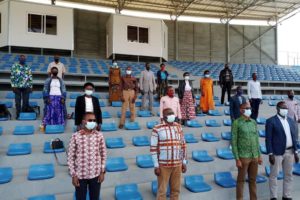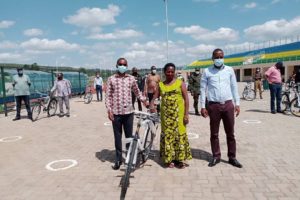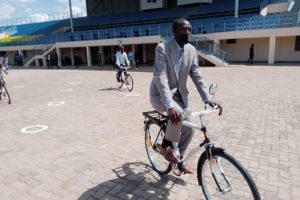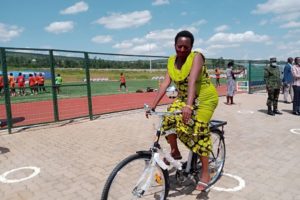Bicycles for reconciliation and community mediation in Rwanda
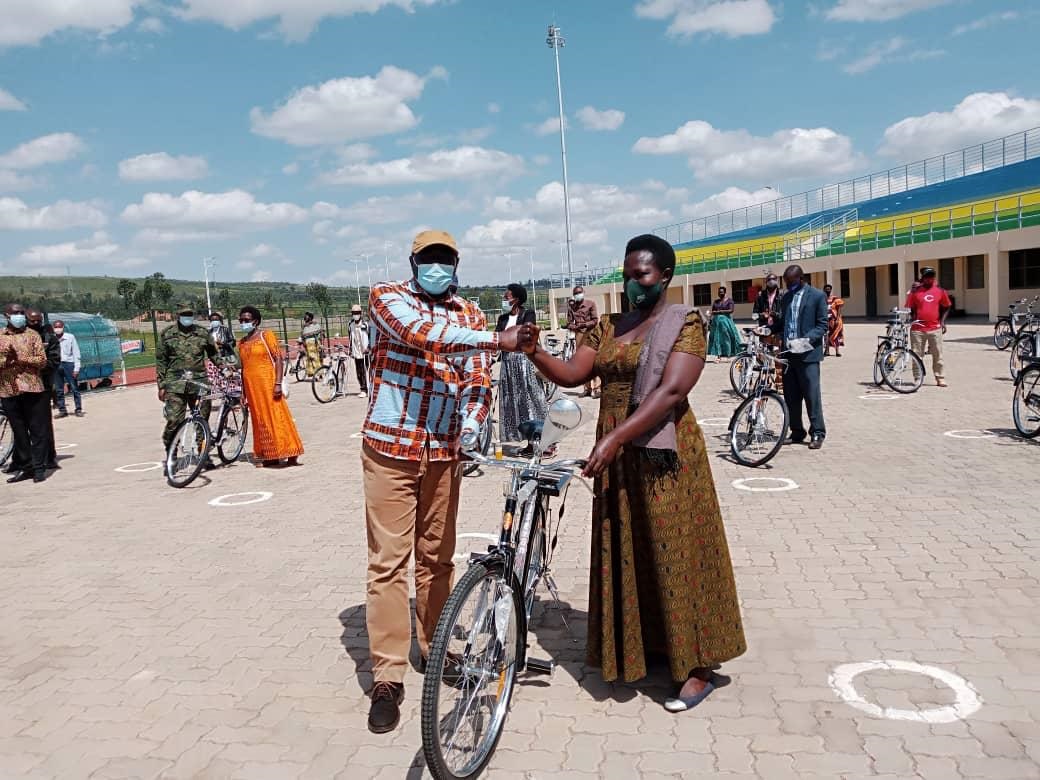
During an event organised on 01 June, in Bugesera, Rwanda, 32 reconciliation mobilisers and community mediators were handed bicycles to ease mobility and facilitate access into communities for reconciliation and conflict mediation.
“These bicycles are going to help us, as reconciliation mobilisers, in our efforts to promote unity and reconciliation in our own areas,” said Jacqueline Nyiramayonde, a recipient of one of the bicycles.
Distance and mobility remain a challenge to access rural communities in Rwanda. In Bugesera, a district that was severely affected by the 1994 genocide against the Tutsi, walking is the primary mode of transport in remote areas. This has made it difficult for reconciliation mobilisers and community mediators to easily access these communities in a timely manner.
“Interpeace has provided this support to enable them conduct their work effectively across all 15 sectors that make up the Bugesera District,” says Frank Kayitare, Interpeace Country Representative in Rwanda.
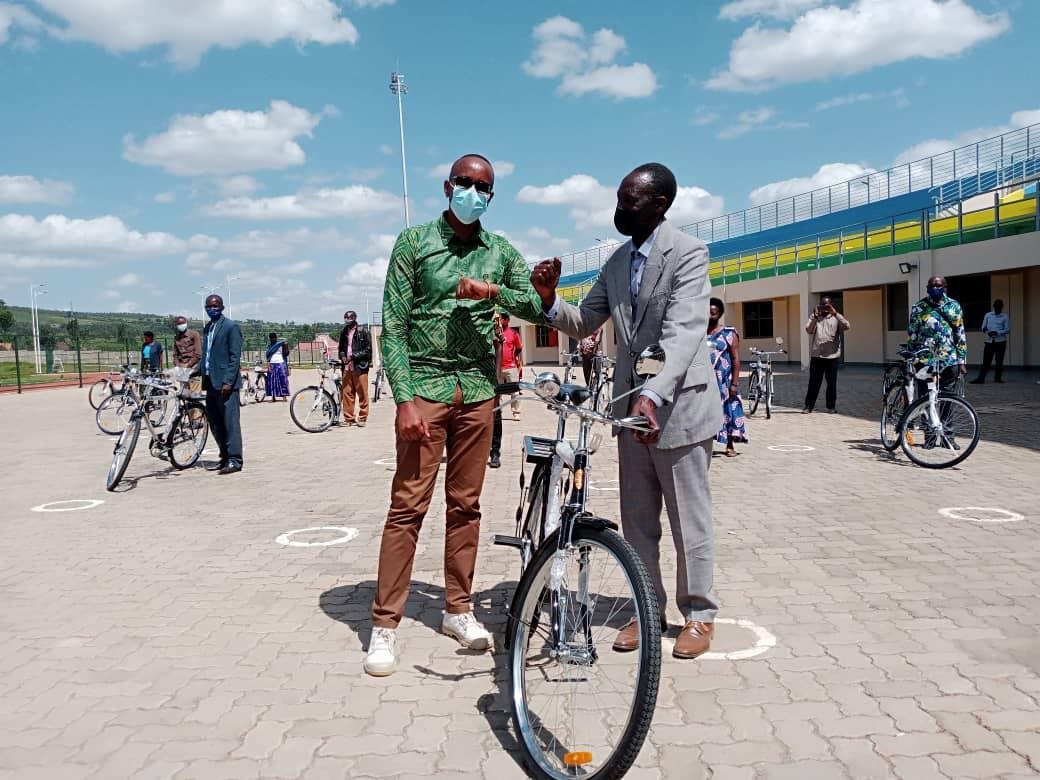
Photo credit: Interpeace
The 32 bicyles were procured with funding from the Deutsche Gesellschaft für Internationale Zusammenarbeit (GIZ) under the project “strengthening mediation capacities and initiatives in the Great Lakes region”. Interpeace is implementing this project in Rwanda and the Democratic Republic of Congo, in partnership with Prison Fellowship Rwanda, the Congo-based Pole Institute and the Commission for Integrity and Electoral Mediation (CIME).
“Unity and reconciliation mobilisers are at the forefront of strengthening the ‘Ndi Umunyarwanda’ [I am Rwandan] programme in their communities. So, there is the need to support and facilitate their work,” said Emmanuel Gasana, the Governor of Rwanda’s Eastern Province during the ceremony.
Bugesera District was among the areas hardest hit in Rwanda by the genocide against the Tutsi. This means Bugesera has a bigger burden of reconciliation and societal healing to deal with. Fully aware of this, Interpeace began implementing the pilot of an innovative and holistic societal healing programme in this district to reconcile people, empower them economically and enhance social cohesion.
- Photo credit: Interpeace
The trauma healing programme is being implemented in partnership with the National Unity and Reconciliation Commission (NURC) and Prison Fellowship Rwanda through the support of the European Union. This GIZ-funded community mediation project is, therefore, an important contribution to this ongoing societal healing initiative.
“This programme, brought to us by Interpeace promotes the culture of peacebuilding, supports unity and reconciliation in Bugesera District and encourages the reconciliation mobilisers to keep up the good work they are doing in their communities,” said Richard Mutabazi, the Mayor of Bugesera District.
With the bicycles, travel times into remote communities will be reduced, giving reconciliation mobilisers and community mediators more time to build peace in their communities. The bicycles will also help them to visit more communities, more frequently.
“Interpeace supports peacebuilding initiatives that are designed from within the communities. Providing bicycles to reconciliation mobilisers is in the spirit of scaling up insider mediation activities across Bugesera District,” concludes Mr Kayitare.
This initiative to provide bicycles follows consultations with the different communities in Bugesera, during which they expressed the need for bicycles to support and facilitate the work of reconciliation mobilisers and community mediators.
The initiative is part of a wider Regional Project on Peace and Security in the Great Lakes Region, in support of the International Conference on the Great Lakes Region (ICGLR). It is co-funded by the European Union (EU) and the German Federal Ministry for Economic Cooperation and Development (BMZ). Implementation is entrusted to the Deutsche Gesellschaft für Internationale Zusammenarbeit (GIZ) GmbH and it’s implementing partner Interpeace
- Photo credit: Interpeace
